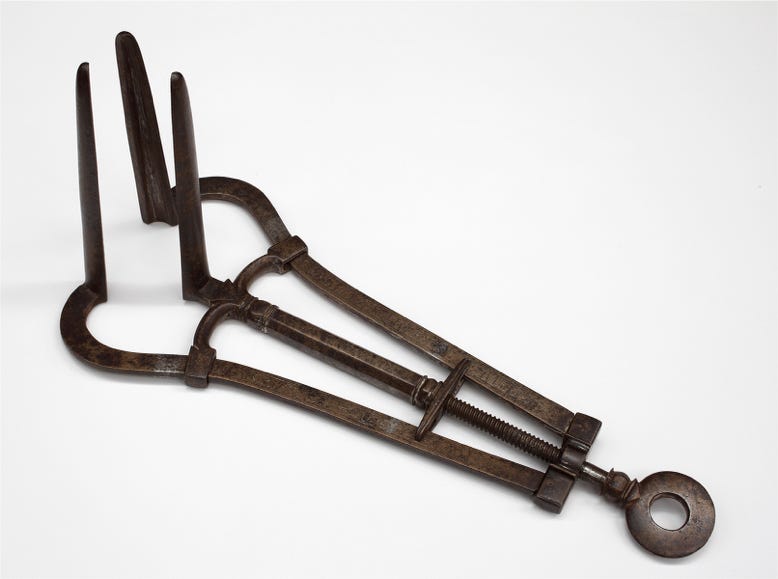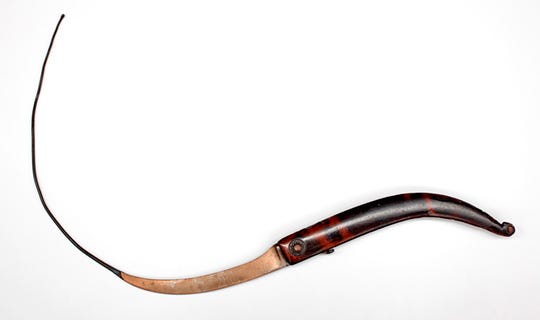Not even Kings are immune to unpleasant diseases and Louis XIV was no different. In 1686 he had the misfortune of developing a large fistula; to the King's - and his doctors' - horror it was soon clear that a surgery was needed. In an age with neither actual anaesthesia nor any concrete idea of hygiene a surgery was a gamble with the patient's life.
As early as 1685 the King's doctors noted that a swelling had appeared near the royal anus. By 18 February it had developed into an abscess and by 2 May it had become a fistula. Worried, the King was subjected to enemas (which can only have been painful) and poultices without effect. As time wore on it became increasingly difficult for the King to ride and even sit. Eventually, it became clear that a surgery was needed.
At first the King was - understandably - not willing to undergo the surgery. Since the fistula was not inflamed (according to Dionis) there was no immediate danger save the discomfort felt by the monarch. The fistula actually burst on its own which the King used as an argument against surgery. Instead, he was first interested in seeing whether his ailment might be cured by special mineral water. This not being the case the King finally consented.
Eventually, the surgeon Félix was commissioned for the task. Before venturing into an operation on the King himself Félix travelled to different hospitals to seek out patients with similar complaints. In total 75 men were seen by the surgeon. Returning with increased knowledge, Félix had new instruments made which would not only ease the patient's pain but make it easier to get rid of the fistula. The instrument would become known as "bistouri à la royale". The instrument - which looks more like a torture device - can be seen at Versailles today. Some said that the King had experiments carried out on these patients to determine which way would be the best to proceed.
 |
| Instrument designed specifically for Louis XIV's surgery |
When the fateful hour - on 21 November 1686 at seven o'clock in the morning - came Louis XIV remained stoic; unlike his everyday-life his courtiers were not invited. The operation itself took 3 hours. Actually, his court knew nothing of the surgery before they were informed that it had taken place. Those who were present with him stated that he never uttered a complaint. To ensure that he was not perceived to be weakened the Sun King dictated that a council meeting was to be held as usual.
In an odd turn of events many gentlemen at court suddenly got the notion that they, too, were suffering from fistulas. Many went to their doctors and were greatly annoyed when told that there was no need for a surgery!
 |
| A probe for the occasion... |
A total of five physicians were in the room with the King: Félix (the chief surgeon), Louvoy, Fagon (the King's doctor), Daquin (another physician) and Bessière (Félix's assistant). Madame de Maintenon was also there, as was the Grand Dauphin and his confessor. The latter was a necessity for actual surgeries considering that they were performed without anesthesia or knowledge about bacteria.
 |
| Félix - the successful surgeon |
Luckily for the surgeons the operation was a massive success and the King made a full recovery.
Louis XIV was so pleased with the Félix's work that he showered him with favours. Not only a cash payment of 15.000 louis d'or and a country estate was given to the surgeon; he was granted a brief of nobility too. The King's public acknowledgement of Félix's field of work meant that surgery as a profession gained a boost in prestige. Previously, doctors had considered themselves the real medical men of the age - which they continued to do - but more focus was placed on the surgeons from this point on.

I always understood that the Fistula was removed by two men who were locals of Paris, who seemingly, were told to "get on with it"..... which they did. Louis making no complaints. Must have been extremely painful. I wonder whether this was followed up by Krones Disease:
ReplyDelete